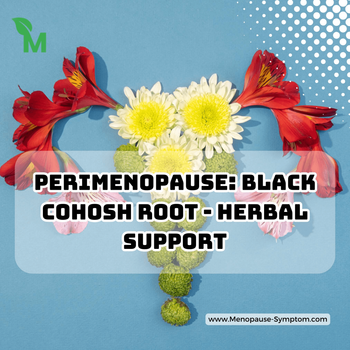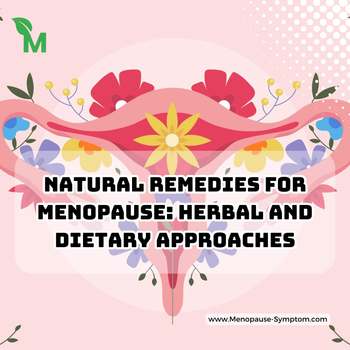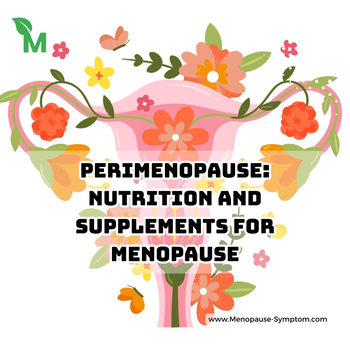Nutritional Yeast For Menopause: A Plant-Based Approach
On
02/09/2024Reading time:
6 min
Summary:
Every woman will experience menopause sooner or later. Instead of panicking or worrying, women should proactively learn about this condition and its typical symptoms to overcome this stage smoothly.
What is menopause?
Menopause is a natural part of the aging process due to the decline in function and activity of the ovaries, causing the female body to no longer ovulate and stop producing hormones. This means that menopause is a milestone marking the end of a woman's menstrual cycle and fertility.
Doctors say that before menstruation stops completely, a woman's menstrual cycle can be longer or shorter with irregular menstrual blood flow. Therefore, it is difficult to determine exactly when the ovaries will stop working completely. Menopause is diagnosed when a woman has gone 12 consecutive months without a period.
What is the age of menopause?
A study in the United States shows that menopause usually occurs between the ages of 40-50, and can even appear as early as the age of 30, but the average age of this condition is 51 years old.
If a woman undergoes surgery to remove her ovaries, menopause can begin immediately. In addition, some medical treatments such as chemotherapy or radiation therapy or acquired diseases such as ovarian failure can also trigger the condition to occur earlier. However, there are also many cases where the cessation of menstruation is only temporary and will return shortly after the woman finishes the treatment.
During the perimenopause and menopause stages, nutritional needs become more important than ever. Choosing the right foods and diet can help improve your health and reduce the unpleasant symptoms associated with perimenopause.
Why should your diet change during perimenopause?
During perimenopause, estrogen levels drop, causing many effects on your overall health. Diet can help maintain hormonal balance. Incorporating foods rich in micronutrients supports the transition and eases perimenopause symptoms. Many studies show that a vegetarian or plant-based diet can help reduce the occurrence of unwanted symptoms during this stage.
Which foods should be prioritized?
Soybeans: Soybeans are an excellent source of plant-based protein, containing isoflavones that help balance hormones. Tofu and soy milk are good options for those going through perimenopause.
Green Vegetables: Green vegetables such as spinach, kale and broccoli are not only rich in fiber but also contain many vitamins and minerals. They help with antioxidants and protect heart health.
Whole Grains: Whole grains such as barley, quinoa and oats can support digestive function and keep energy levels stable, which is important during perimenopause.
Fruits and Nuts: Fruits such as grapefruit, apples, and nuts such as almonds and walnuts are rich in omega-3s and fiber, which help improve mood and provide energy to the body.
The Importance of Vitamins and Minerals
Vitamin D and calcium are two important factors during perimenopause. They help maintain bone health and reduce the risk of osteoporosis. Sunlight provides vitamin D, and foods such as salmon, egg yolks and mushrooms are also rich sources.
Magnesium, zinc and B vitamins are also essential nutrients to support hormone conversion in the body. Getting enough of these micronutrients through your daily diet can help alleviate symptoms during perimenopause.
Foods to Avoid
During perimenopause, certain foods can aggravate symptoms. Caffeine and alcohol can cause restlessness and reduce sleep quality. Foods high in sugar and saturated fat should also be limited as they can cause unwanted weight gain.
A plant-based diet not only helps balance hormones but also supports overall health. Many studies show that adopting such a diet can help reduce the risk of chronic diseases, including diabetes and cardiovascular disease.
Specific nutritional approaches
The principle of "vegetarianizing" the diet can be applied through two main methods:
Vegan diet: Why not experiment with a vegetarian diet? : Completely eliminating animal foods can bring significant health benefits. Instead, you will add to your daily menu foods rich in nutrients and antioxidants without animal cholesterol.
Mediterranean Diet: This diet incorporates a variety of plant foods such as fruits, vegetables, whole grains and olive oil, as well as seafood such as fish. The Mediterranean diet has been shown to reduce the risk of heart disease and improve blood circulation, which is essential during perimenopause.
Herbal Supplements
In addition to diet, herbs can also help during perimenopause. Some herbs such as green tea, flaxseed and valerian, chamomile tea can help reduce typical symptoms such as hot flashes and insomnia.
Combined with Benefits of Exercise
Along with diet, regular exercise is also important. Practicing yoga or pilates not only helps to relax but also helps to balance hormones. Exercise also improves mental health, helping you maintain a positive mood during this time.
Expert Advice
Before changing your diet or starting any herbal supplement, consult your doctor or nutritionist for the best advice for your individual health condition.
Conclusion
Perimenopause is an inevitable stage in every woman's life. Adopting a plant-based diet is not only beneficial for your physical health but also for your mental health. Listen to your body and choose the right foods to enter this new stage of life with confidence and health. Maintaining a healthy lifestyle during perimenopause will be a priceless gift for your long-term health.
Source: Team MPS compiled, analyzed and wrote. Please dont reup without source. Many thanks.

Perimenopause: Black Cohosh Root - Herbal Support
09.02.2024
As women enter perimenopause, their bodies begin to undergo significant changes. This period marks an important transition in every woman's life, but it also comes with its own set of challenges and problems.

Natural Remedies For Menopause: Herbal And Dietary Approaches
10.07.2024
Perimenopause and menopause often bring many physical and mental changes for women - This is a natural stage in every woman's life.

Perimenopause: Nutrition And Supplements For Menopause
10.07.2024
Perimenopause is a challenging transition for many women, usually starting in their 40s. During this time, hormonal changes occur, causing a variety of unpleasant symptoms, from headaches to hot flashes.
